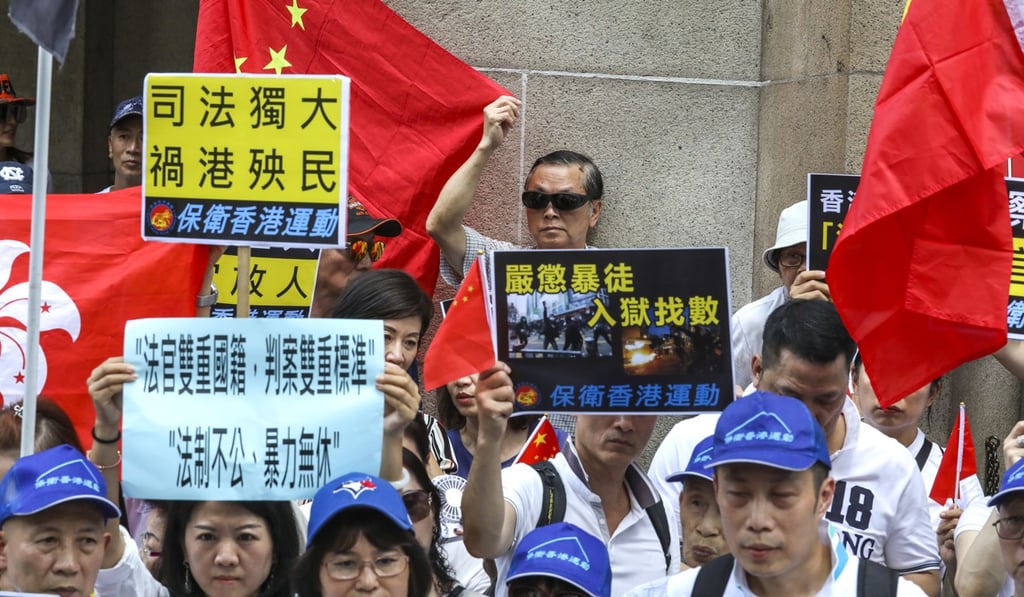Pro-government demonstrators demand resignation of Hong Kong Chief Justice Geoffrey Ma over ‘lenience’ shown to democracy activists
- 100 people from Defend Hong Kong Campaign rally outside Court of Final Appeal, alleging judges have helped offenders by bailing them
- But legal expert Eric Cheung says judges give bail based on reasoning and one’s political stance is never taken into account in decision-making

Pro-government protesters in Hong Kong have demanded the resignation of Chief Justice Geoffrey Ma Tao-li, saying judges were too lenient in granting bail to those charged over the protests and had failed to hand down deterrent sentences to convicted people.
About 100 people from Defend Hong Kong Campaign held a rally outside the Court of Final Appeal in Central on Thursday, waving the Chinese flag and signs that read: “Police arrest people, the courts release people”.
“We feel the judges have sometimes helped those who committed offences,” Kenny Po Chun-chung, the group’s president, said.
But judicial officers and a legal expert have dismissed the allegation, saying the courts always acted in accordance with the law.

The judiciary’s press and public relations office said: “The courts handle cases strictly in accordance with the law and always ensure fairness.”